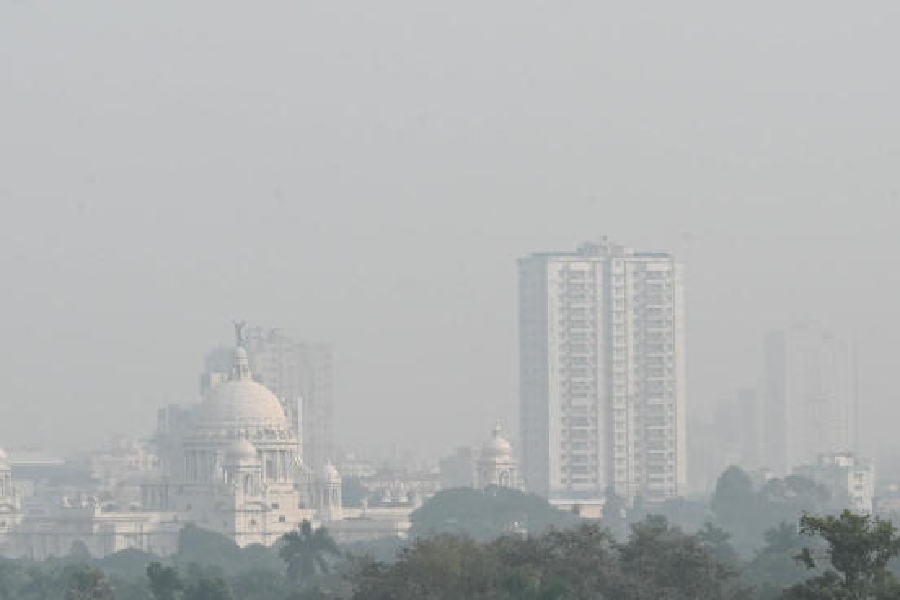The city was the most polluted metro in the country on Saturday, Central Pollution Control Board (CPCB) showed.
Although both Kolkata and Delhi had “poor” air quality from 4pm on Friday to 4pm on Saturday, Kolkata’s air quality index (AQI) value was 269 compared to Delhi’s 225.
The rain in the national capital was a blessing and reduced the pollution impact.
Chennai was third with an AQI of 115 and Mumbai was fourth with 90. Bangalore and Hyderabad had AQI levels 90 and 94, respectively.
Gufran Beigh, founder and project director of SAFAR (System of Air Quality and Weather Forecasting and Research) under the Union government, said Kolkata’s presence at the top is likely to be short-lived.
“We expect Delhi’s air to be very poor on Sunday and severe the day after,” Beigh told The Telegraph on Saturday evening.
A scientist at the Bose Institute predicted that Kolkata’s air quality is likely to remain “around 200-230 (poor)” during Diwali. “Though, overall, the city’s AQI is likely to remain poor during Diwali, various regions within the city may turn very poor,” Abhijit Chatterjee said.
AQI is the reflection of overall air quality in the area and is calculated based on the most dominant pollutant during the period. For Kolkata and Delhi, PM 2.5, the most toxic pollutant that can penetrate deep into the lungs and trigger a range of diseases, was found to be the most dominant pollutant.
The CPCB data shows Kolkata’s AQI has been rising sharply over the past few days as winter sets in. The air quality turned from “moderate” to “poor” between November 5 and 10.
Poor air quality, according to the CPCB, may lead to “breathing discomfort to most people on prolonged exposure”, while very poor air may cause “respiratory illness on prolonged exposure”.
Chatterjee said people should avoid bursting firecrackers on narrow roads as far as possible. He said water needs to be sprinkled in the late afternoon on Diwali day to minimise the re-suspension of dust from the bursting of fireworks.
